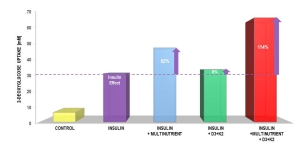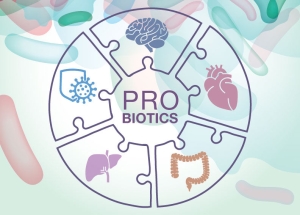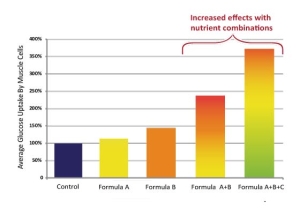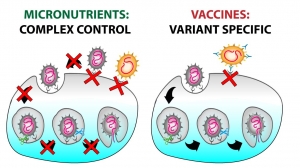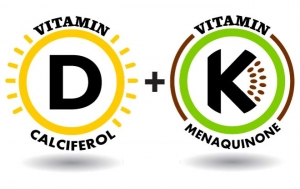Elijah Artman
Although many chronic health conditions increase the severity of COVID-19, it has been observed that diabetes patients are at significantly higher risk of serious disease, complications, and death from COVID-19. Currently, 1 in 11 adults in the world has diabetes, and it is estimated that by 2050 almost 1 in 3 people will have diabetes or pre-diabetes. More than 34 million Americans have diabetes and 7.5 million have pre-diabetes.
Humans have more microbes in and on their body than the number of cells. Trillions of bacteria, viruses, and fungi live in the human digestive system and most of them are beneficial bacteria. Collectively they are called “gut microbiome” or “gut flora” and they are essential for a number of physiological functions to keep us healthy. The gut microbiome is now considered as one of the organs in the human body, and hence should be taken care of just like all other organs. Probiotics are the supplemental form of healthy bacterial colonies used to replenish the gut microbes. It is important to have a balanced bacterial population in the digestive system. Any imbalance in the digestive microbial environment is called dysbiosis.
Marine plants, either marine algae or seaweeds, were part of the daily diet of our ancestors and have been consumed in different parts of Asia for centuries. Although plants like kelp, nori, dulce, and spirulina are more commonly used in sushi, Asian soups, snacks, or seasonings, there are many other varieties of sea plants packed with important nutrients. These sea vegetables absorb beneficial nutrients from the ocean and are very good sources of protein, fiber, healthy polyunsaturated fats, antioxidants, and vitamins and minerals. For example, after iodized salt they are the second richest source of iodine, and it is well known that iodine is critical for a healthy thyroid gland. Thyroid hormones - thyroxine (T4) and tri-iodothyronine (T3) - play a vital role in growth and development of the body and in regulating various metabolic processes, including basic metabolic rate, healthy functioning of the brain, heart, immune and digestive systems, and building strong muscles and bones. Two sea plants which contain critical nutrients for overall health are Irish moss and bladderwrack.
In addition to the continuing COVID-19 pandemic and the omicron wave, the flu season is also upon us. As we have already learned, the RNA/DNA vaccines have severe limitations in preventing coronavirus infections, emerging viral mutants and their spread, and seasonal anti-flu vaccines cannot keep up with the viral mutations. It is difficult to protect ourselves from every single infectious agent unless our own immunity is strong. Most of the antivirals weaken the immune system and cause other side effects. It is critical to address the fundamental mechanisms of infection and increase the immunity of the human population.
Diabetes is the one of the fastest growing non-communicable diseases worldwide. It is associated with high blood sugar levels, which increases the risk of cardiovascular disease and kidney problems. It increases one’s risk of serious COVID-19 outcomes, as 40% of people who have died of COVID-19 also had diabetes. Currently, 1 in 11 adults in the world has diabetes, and it is estimated that by 2050 almost 1 in 3 people will have diabetes or pre-diabetes. More than 34 million Americans have diabetes and 7.5 million have pre-diabetes. With such staggering statistics, the National Institutes of Health (NIH) has declared November as Diabetes Awareness Month to prevent and effectively manage this disease.
Despite availability of vaccines, more than 2000 people die every day in the US alone due to COVID-19 and approximately 133,000 new cases are reported daily.1 Currently, more than 182 million Americans, or 54%, are considered fully vaccinated against SARS-CoV-2, and approximately 64% of the population has received at least one vaccine dose. However, reports indicate that vaccine efficacy reduces with time and booster doses are now recommended despite a lack of unity from the FDA and CDC experts in accepting this step. Moreover, new variants of the coronavirus further complicate the picture, and “breakthrough infections” in the fully vaccinated are on the rise. This situation calls for the revision of current approaches and incorporation of innovative health strategies that are effective, economic, and accepted by the majority of people worldwide.
Vitamin C plays a critical role in human health, and we must take it in our diet or supplements since our bodies cannot produce it. Among the most important functions of vitamin C is protection of integrity and elasticity of blood vessels, and preventing formation of atherosclerotic plaques which are the underlying cause of heart attacks and strokes. The cardiovascular diseases result in millions of deaths each year. Low fat diets and cholesterol-reducing medicines have not been successful in addressing this issue.
In the previous Health Science News Page, we discussed the benefits of vitamins D and K when applied individually. While these two fat-soluble vitamins have several health benefits, they work the best when combined.
Vitamin D by itself is important for maintaining strong bones, a healthy cardiovascular and immune system, and has anti-cancer properties. The two different types of vitamin D are D2 (ergocalciferol) present in plant-based products such as mushrooms, and D3 (cholecalciferol) present in animal products and fatty fish. It is well known that vitamin D is needed for effective absorption of calcium from the digestive system and promoting its mobilization towards the bones. It also helps in regulating the calcium-phosphorus ratio required for healthy bones. Vitamin D3 works together with vitamin K2 in maintaining calcium balance in the body affecting activation of bone protein (osteocalcin) responsible for the incorporation of calcium in the bones. In clinical trials a combination of vitamin D3 and vitamin K2, especially subtype MK-7, increased bone density in postmenopausal women with osteoporosis compared to each vitamin taken individually and a placebo.
Vitamin K is a fat-soluble vitamin now known for a variety of functions, however it is still referred to as the “blood clotting vitamin.” Currently, researchers are learning about its role in a wide array of physiological processes including during the COVID-19 pandemic. Vitamin K is essential for healthy bones, the cardiovascular system, the liver, kidneys, pancreas, brain and nervous system, and it has anti-inflammatory and anti-carcinogenic properties.
Vitamin D is a fat-soluble vitamin, sometimes known as the sunshine vitamin because the ultraviolet rays from the sun initiate its production in the skin. Vitamin D is a type of prohormone that is produced when cholesterol in the skin is exposed to the UV rays from the sun. Further processing in the liver and kidneys is an important step in the production of the active form of vitamin D called calcitriol. The two different types of vitamin D are D2 (ergocalciferol) present in plant-based products such as mushrooms, and D3 (cholecalciferol) present in animal products and fatty fish. Vitamin D3 is found to be twice as effective as D2 in raising the blood levels of vitamin D.
